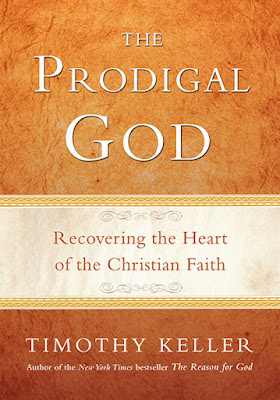 This year I have dedicated most of my bible reading to the Gospels. I have just finished reading the Gospel According to Luke which is the one gospel I have probably payed the least attention to since I became a Christian. I found myself moved by Jesus’ love for outcasts and those on the fringes of society. Jesus himself summarizes his mission as “coming to seek and save the lost”. When I came to the story of the lost coin, lost sheep and lost sons I was so moved by the relentless love of God for sinners that I knew I wanted to spend more time thinking on these things. I scanned my bookshelf and my eyes were drawn to Tim Keller’s book, The Prodigal God. I had started to read this several years ago on an airplane on my way to the very first Gospel Coalition conference in Chicago; I only got a quarter of the way through and then put it down until now.
This year I have dedicated most of my bible reading to the Gospels. I have just finished reading the Gospel According to Luke which is the one gospel I have probably payed the least attention to since I became a Christian. I found myself moved by Jesus’ love for outcasts and those on the fringes of society. Jesus himself summarizes his mission as “coming to seek and save the lost”. When I came to the story of the lost coin, lost sheep and lost sons I was so moved by the relentless love of God for sinners that I knew I wanted to spend more time thinking on these things. I scanned my bookshelf and my eyes were drawn to Tim Keller’s book, The Prodigal God. I had started to read this several years ago on an airplane on my way to the very first Gospel Coalition conference in Chicago; I only got a quarter of the way through and then put it down until now.
Tim Keller has a unique ability to communicate truths in a clear and concise manner. He points out that the parable we find in Luke 15 is often called the Parable of the Lost Son; however, the Parable of the Lost Two Sons would be more fitting. Keller says that we tend to focus on the younger son who squanders his inheritance. Luke, on the other hand, places this story in the context of Jesus’ confrontation with the religious leaders (the elder brother) over his fraternizing with sinners and tax collectors (the younger brother). The younger son is still a part of the story but Keller, rightly in my mind, brings out the prominence of the elder.
Throughout the book Keller argues that based on this story we need to redefine a few categories. Sin, for instance, is usually defined as the breaking of moral rules. The elder brother, though, is a good rule keeper. It is his pride in his rule-keeping that is keeping him from joining in the feast. Lostness is redefined as well as the idea of thinking you can put God in your debt. In my favourite chapter, Keller redefines hope in terms of exile and returning home. I am a totally nostalgic person and very much related to this story:
“Many of us have fond memories of times, people, and places where we felt we were truly home. However, if we ever have an opportunity to get back to the places we remember so fondly, we are usually disappointed. For thirty-nine years my wife, Kathy, spent summer with her family in a ramshackle cottage on the shores of Lake Erie. The very memory of that place is nourishing to Kathy’s spirit. But returning to the actual, now dilapidated property is a gut wrenching experience…Home, then, is an elusive concept.”
Later he writes, “We may work hard to re-create the home that we have lost, but, says the Bible, it only exists in the presence of the Heavenly Father from which we have fled”.
This is yet another good resource that is good for the the Christian and non-Christian alike. It would be a good book to pass along to someone who is curious about the Christian faith and wants to learn more.
